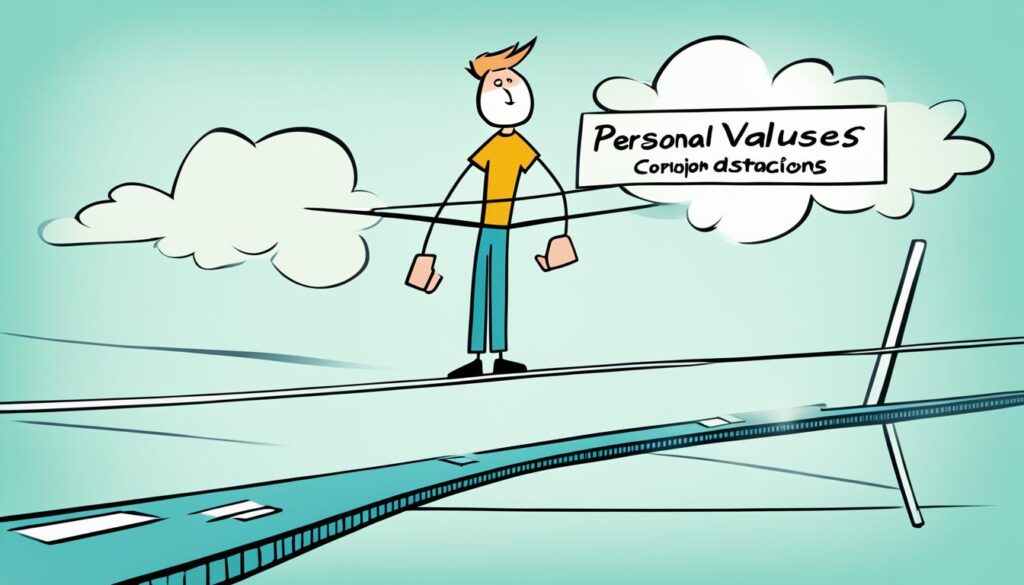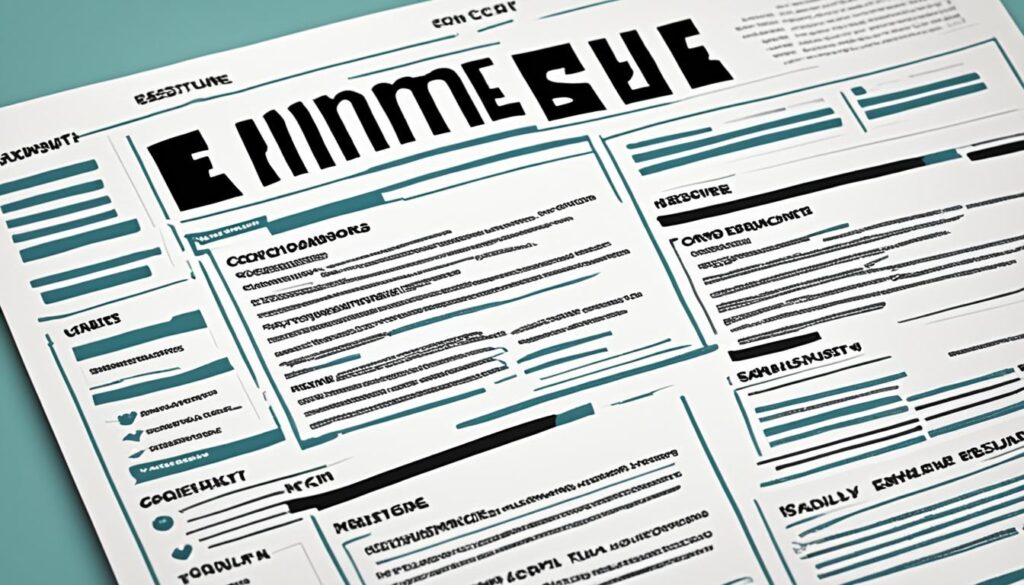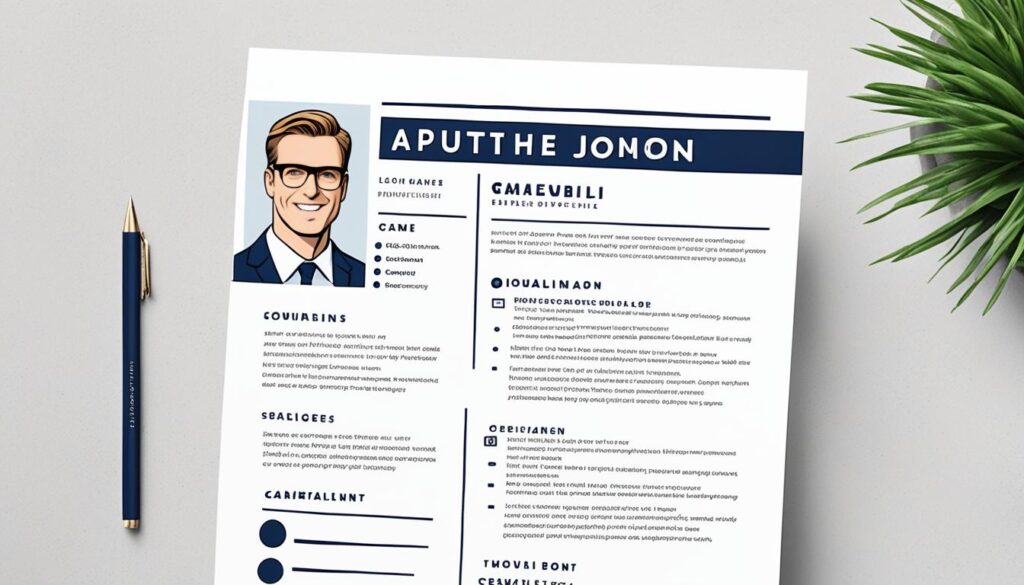Personal Development and Growth
The Worst Personal Mistakes and How to Avoid Them
Learn how to navigate life’s pitfalls by recognizing the worst personal mistakes and mastering ways to dodge them for a better future.

We all make mistakes. Sometimes we wish we could go back and choose differently. Some mistakes are small and easy to fix. Others can change our lives in big ways. This article talks about big personal mistakes and how to stay away from them. By understanding these errors, you can face life better and have a happier future.
You’re at a crossroads, choosing between a safe path and an unknown one. You pick the unknown, hoping for better chances. Yet, as you go, you see it was a wrong choice. The path is hard, and you face many obstacles. You start to doubt your decision.
Taking risks can sometimes help us grow. But, it’s important to think carefully before making a choice. A big mistake is not looking at the good and bad sides of a decision. It’s easy to get excited by a new chance without thinking of the risks.
This article will look at big mistakes people make and how to avoid them. We will talk about money errors, not focusing on personal growth, and more. The goal is to learn from errors, make smart choices, and take steps for a better future.
Key Takeaways:
- Avoid fast decisions and think about the good and bad sides.
- Learn from mistakes and choose wisely to not repeat them.
- Work on personal growth and taking positive steps for the future.
- Plan your spending, keep track of money, and stay away from debt you don’t need.
- Look after your body and mind with exercise, healthy food, and self-care.
Financial Missteps: Overspending and Debt
Many people often spend too much and build up debt. A study by Bankrate found that 28% of Americans have more credit card debt than they do emergency savings. This issue can cause a lot of stress and stop you from reaching your dreams.
To steer clear of overspending and debt, it’s vital to actively manage your finances. Making a budget helps you keep track of what you earn and spend. This way, you can see where you might be using too much money. By figuring out what’s most important and limiting extra spending, you can take control of your finances.
Also, try to avoid buying things on a whim. Impulse buys can add to your debt and mess with your financial health. Instead of just buying something immediately, think about if you really need it and if it fits your financial plans. This careful thinking can help you make better choices and keep debt away.
Making financial mistakes can affect you for a long time. Being careful and making smart choices can help you keep a good financial balance. This way, you can work towards a future without debt.
Creating a Budget: A Step-by-Step Guide
Following these steps can help you manage your finances better and avoid spending too much:
- Assess Your Income and Expenses: Figure out what you make each month and keep an eye on your spending to understand where your money goes.
- Set Financial Goals: Think about what you want to achieve soon and in the future, like saving for an emergency or paying off what you owe.
- Categorize Your Expenses: Organize what you spend into different types, such as housing, travel, food, fun, and debt repayments.
- Create a Budget Template: Make a plan using a spreadsheet or an app to outline your earnings, spending, and how much goes to each type.
- Allot Funds to Categories: Split your income among the different types of spending, making sure each gets a fair and manageable share.
- Track Your Expenses: Keep an eye on your spending and change your budget as needed to stay on course.
- Review and Revise: Look over your budget now and then to see how close you are to your financial goals and adjust if needed.
By doing these things and sticking to your budget, you can cut down on overspending, lower your debt, and have a more stable financial life.
Benefits of Maintaining a Healthy Financial Situation
Good financial habits and avoiding too much spending and debt have many positives:
- Reduced Financial Stress: Taking care of your money well can lessen the worry and stress from debt and not knowing if you have enough.
- Increased Freedom and Flexibility: When your finances are in good shape, you have more choices and can do things that matter to you.
- Improved Overall Well-being: Being stable financially lets you focus more on relationships, growing personally, and your general happiness without money worries.
- Opportunity for Future Growth: By not overspending or getting into unnecessary debt, you can save and invest for later, opening up chances for personal and financial improvement.
Being careful with your money and making deliberate decisions can lead to a more stable and successful financial future.
Failure to Save for the Future
When it comes to money matters, not saving for later is a big mistake many people make. This mistake can lead to serious money problems. You could end up not ready for sudden costs or your retirement years. A CNBC survey found that about a third of Americans have no retirement savings at all.
The effects of not having savings are huge. You could face hard times if you get an unexpected bill for health care, auto repair, or if you lose your job. Also, without savings, finding yourself in trouble during retirement is a real possibility. This is a time when you should be enjoying life instead.
It’s key to start saving as soon as you can to secure your future. Here are steps to help you:
- Put money into retirement accounts: Start with putting a part of what you earn into retirement accounts like a 401(k) or an IRA. These accounts come with tax benefits and grow over time.
- Make saving automatic: Set up automatic transfers to a savings account. This makes saving easier and keeps you from spending the money elsewhere.
- Plan a budget: Look at your income and spending to figure out how much you can save. Cutting unnecessary costs means you can save more.
- Build an emergency fund: It’s crucial to have money set aside for surprises. Try to save enough to cover three to six months of expenses in a separate account.
- Get advice: If planning for the future seems daunting, talk to a financial advisor. They can help you set goals, make a plan, and guide you.
Remember, saving for later isn’t just nice to have, it’s necessary. By focusing on your future financial health and following these steps, you can steer clear of the mistake of not saving. This will help you build a more secure future.
The Impact of Saving for the Future
| Benefits of Saving for the Future | Consequences of Failing to Save |
|---|---|
| Financial security in emergencies | Financial vulnerability to unexpected expenses |
| Preparation for retirement | Lack of retirement savings |
| Reduced stress and anxiety | Financial setbacks and increased stress |
| Ability to achieve long-term goals | Limitations on future opportunities and aspirations |
Creating a stable future starts with avoiding not saving. By using smart financial steps and making saving a big part of your plans, you can avoid tough times. This way, you can enjoy a life that’s more financially secure.
Poor Health Choices: Neglecting Exercise and Diet
Not exercising and eating poorly can harm your health. The CDC says about 36% of U.S. adults are obese. This shows why it’s key to exercise regularly and eat right to stay healthy and avoid sickness.
Sitting too much and eating poorly can cause problems like obesity, heart disease, and diabetes. Exercising helps your heart, strengthens muscles, improves your mood, and gives you more energy. You should do aerobic activities for 150 minutes a week or intense ones for 75 minutes.
Eating well is also crucial. A diet full of fruits, veggies, whole grains, lean proteins, and healthy fats is important. This diet supports your immune system, helps keep a healthy weight, and lowers the chance of sickness. Try to eat less processed foods, added sugars, and unhealthy fats.
“Let food be thy medicine and medicine be thy food.” – Hippocrates
Making good food choices and watching how much you eat can keep you at a healthy weight. Small changes in your daily habits can greatly improve your health. Eat nutrient-rich foods, drink plenty of water, and cut down on sugary drinks. Choose whole foods and balance your carbs, proteins, and fats.
The Connection between Exercise and Iet
Staying active and eating well go together in a healthy life. Exercise burns calories, builds muscle, and controls appetite. It makes choosing healthy foods easier and supports a balanced diet.
Eating healthy gives you the energy and nutrients needed for exercise. A diet full of whole foods helps your muscles recover and improves your endurance and performance.
Combining regular exercise and good eating habits boosts your fitness, energy, mental health, and lowers disease risk.
Changing your lifestyle slowly is key. Begin with achievable goals and slowly add more exercise and better foods to your life. A healthcare professional or dietitian can give you advice tailored to your health and needs.
Choosing to exercise and eat well is investing in your future health. Start today for a healthier and happier tomorrow.
Lack of Communication in Relationships
Good communication is vital in any relationship. Without it, misunderstandings happen, causing problems and making people unhappy. A study in the Journal of Marriage and Family shows that not talking is a big relationship mistake.
To keep relationships strong, listen well to your partner. Share your feelings and thoughts openly. Work on your ability to communicate well. This helps avoid mistakes, solve problems together, and feel closer to each other.
“Good communication is the bridge that connects hearts, builds understanding, and strengthens bonds.”
For better communication, remember to:
- Listen carefully and show you’re interested in your partner’s words.
- Speak gently and clearly to avoid confusion.
- Try to see things from your partner’s side.
- Use body language, like eye contact, to show you’re listening.
Make sure both you and your partner can talk freely about your feelings, worries, and wants. True and open talks build trust, connect hearts, and make for a supportive, strong relationship.
The Importance of Effective Communication
The good things about communicating well:
| Benefits of Effective Communication | Keywords |
|---|---|
| 1. Resolve conflicts amicably | resolve conflicts, amicably |
| 2. Foster understanding and trust | foster understanding, trust |
| 3. Strengthen emotional connection | strengthen emotional connection |
| 4. Prevent misunderstandings | prevent misunderstandings |
| 5. Share needs and concerns openly | share needs, concerns openly |

By making good communication a priority, your relationship can grow stronger over time.
Procrastination and Lack of Time Management
Procrastination and poor time management badly affect your productivity. They stop you from reaching your goals. Studies show procrastination links to being less happy and more stressed. It’s vital to fix these issues and find ways to get better at managing time. Here’s how:
- Prioritize tasks: Pick the most urgent tasks and do them first. This helps you tackle what’s important, boosting your efficiency and lowering stress.
- Break tasks down: Big tasks seem scary and make us put them off. Split them into smaller steps. This makes tasks seem doable and helps you progress step by step.
- Utilize time management techniques: Look into different time management strategies like the Pomodoro Technique or the Eisenhower Matrix. These plans help you use your time well and work smarter.
Using these tips, you can beat procrastination and get better at managing your time. Remember, even small changes can greatly improve your productivity and happiness.
Integrate Time Management Techniques into Your Routine
Adding time management techniques to your daily life is helpful. Here are some extra tips for better managing your time:
- Set realistic goals: Have clear goals for what you want to achieve each day. This keeps you focused and pushes you to use your time well.
- Create a schedule: Plan specific times for work, errands, and relaxing. This organizes your day and ensures you balance between work and fun.
- Avoid multitasking: Though many think it’s good, multitasking lowers your productivity. Focus on one thing at a time for better results.
Improving your time management skill takes practice and dedication. As you get better, you’ll find yourself more productive and less stressed.
“You may delay, but time will not.” – Benjamin Franklin
| Consequences of Procrastination and Poor Time Management | Benefits of Effective Time Management |
|---|---|
| Missed deadlines and opportunities | Improved productivity and efficiency |
| Increased stress and anxiety | Reduced stress levels and improved well-being |
| Poor performance and quality of work | Enhanced focus and higher quality outcomes |
| Feeling overwhelmed and disorganized | Increased sense of control and clarity |

Don’t let procrastination stop you from your best. Good time management can fight this habit and boost your productivity. Value time management as an important skill and actively work on it.
Ignoring Personal Growth and Development
“Knowledge is power” truly applies to personal growth and development. However, many overlook their own improvement. This overlook hampers their advancements and limits success chances.
A Pew Research Center survey shows only 33% of Americans believe they’ve met their personal and professional growth targets. This reveals a common issue affecting individuals’ full potential achievement.
Personal growth and self-betterment hinge on investing in oneself. It involves setting goals, pinpointing improvement areas, and boosting skills and knowledge.
To grow personally, create a plan. Learn new things, read books, take courses, and seek broadening opportunities. By chasing personal growth, you unlock doors, gain deeper insights, and achieve greater feats.
“The only person you should strive to be better than is the person you were yesterday.” – Matty Mullins
Try branching into new interests, attend workshops, and take on inspiring challenges. Keep an open mind to fresh ideas and push your boundaries to encourage growth.
Growth is not just about learning new things. It also means getting a growth mindset, being resilient, and caring for your emotions. Reflect on yourself, practice self-care, and choose friends who uplift your growth journey.
Valuing personal growth helps broaden your perspectives, reach your potential, and craft a brighter future.
The Benefits of Personal Growth and Development
Personal growth brings many life-enhancing advantages:
- Enhanced self-awareness and self-confidence
- Improved problem-solving and decision-making skills
- Increased adaptability and resilience to challenges
- Better communication and relationships with others
- Opportunities for career growth and professional success
- Improved well-being and satisfaction in life
Embracing personal development lets you face life better, grasp new chances, and enjoy a rewarding existence.
Failure to Set Boundaries
Not setting boundaries can harm your mental and emotional health. Without clear boundaries, you may feel overwhelmed, used, and exhausted. It’s key to understand the role of personal boundaries and actively work to set them.
Boundaries help you look after your own needs and protect your health. They let you define what you’re okay with in your life and work. Having boundaries gives you control and self-respect. This empowers you to lead a healthy, balanced life.
To set boundaries, figure out your needs and what matters to you. Think about your personal limits. Then, tell those limits to others clearly and stand your ground, in both your personal and work life.
It’s fine if others have different views. Expressing your boundaries, even when they differ, is caring for yourself. Saying “no” is okay. It’s a part of looking after your well-being.
Steps to Set and Maintain Personal Boundaries:
- Reflect on your needs and values.
- Identify where you need boundaries.
- Communicate your boundaries confidently.
- It’s okay to say “no” when needed. li>
- Keep up your own boundaries.
- Get help from friends, family, or pros.
Remember, setting boundaries isn’t selfish. It’s an act of caring for and respecting yourself. By putting your needs first and communicating your limits, you make your life healthier and happier. Always stand up for your well-being. You deserve to set and keep boundaries for your health.
By having personal boundaries, you boost your self-esteem and avoid stress and burnout. Embrace the strength of boundaries to live a life true to your values and goals.
| Common Mistakes | Healthy Boundaries |
|---|---|
| Failing to communicate your needs | Expressing your needs assertively |
| Letting others control your time and energy | Setting limits on your time and energy |
| Feeling guilty for saying “no” | Feeling okay about your boundaries without guilt |
| Not noticing signs of overwhelm or burnout | Paying attention to signs of overwhelm |
| Not acting when boundaries are crossed | Acting when someone crosses your boundaries |
Keeping healthy boundaries is a continuous journey. It requires knowing yourself, being kind to yourself, and a pledge to your wellness. By learning from the past and setting boundaries, you craft a life that values your needs and nurtures your contentment and growth.
Disregarding Personal Values
Living true to your values is key to feeling fulfilled and avoiding inner turmoil. When you ignore your values, you might feel unhappy or disconnected from who you really are. A study in the Journal of Personality and Social Psychology found that people living by their values feel happier and more satisfied with life.
Start by figuring out what’s most important to you. Think about the principles that guide your choices and give your life meaning. These might be values like honesty, compassion, creativity, or valuing family.
After identifying your main values, make decisions that align with them. Review your everyday actions, relationships, and commitments to ensure they match your values. This could mean making hard choices or setting limits to stand by your beliefs.
Being true to yourself means staying loyal to your values, even when it’s tough. Use your values as a guide for your actions and choices, especially when outside pressures or competing priorities arise.
Remember, staying true to your values makes life more meaningful and purposeful. Ralph Waldo Emerson once said, “To be yourself in a world that is constantly trying to make you something else is the greatest accomplishment.”
Benefits of Living in Alignment with Your Values
Putting your values first offers benefits across many aspects of life:
| Personal Well-being | Relationships | Career |
|---|---|---|
| Improved self-esteem and confidence | More genuine connections and authenticity in relationships | Higher job satisfaction and a sense of fulfillment |
| Less inner conflict and better mental health | Healthier boundaries and relationship dynamics | Your personal and professional goals align |
| Greater overall happiness and life satisfaction | Better communication and understanding with others | More motivation and productivity at work |
Living according to your values lays a solid foundation for personal growth, genuine relationships, and a satisfying life.

Ignoring Mental Health and Self-Care
Ignoring your mental health and not taking care of yourself can be harmful. It’s crucial to focus on your mental health for a happier life.
About 1 in 5 adults in the U.S. faces mental illness each year, says the National Alliance on Mental Illness (NAMI). This shows how vital mental health care is.
Taking time for self-care isn’t selfish. It helps you stay alert, involved, and productive in your life.
To take care of your mental health, try things like:
- If you’re struggling, talk to someone who can help. Reaching out for support is essential.
- Do things that relax and recharge you. This could be a hobby, working out, or hanging out with friends.
- It’s okay to say no. Avoid things that stress you out or make you tired.
- Be gentle with yourself. Treat yourself as you would treat a friend.
“Self-care is not selfish. You cannot serve from an empty vessel.” – Eleanor Brownn
Making these actions part of your routine can better your mental health. And it builds a stronger connection with yourself.
Keep in mind, caring for your mental well-being is a continuous effort. Make it a key part of your life.
The Benefits of Prioritizing Mental Health and Self-Care
Making mental health and self-care a priority can positively affect many areas of your life:
| Physical Health | Emotional Well-being | Productivity |
|---|---|---|
| Reduced stress levels | Improved mood and emotional resilience | Increased focus and concentration |
| Enhanced immune function | Better stress management | Higher work efficiency |
| Lower risk of chronic diseases | Increase in self-esteem and self-confidence | Boosted creativity and problem-solving skills |
By focusing on your mental health and self-care, you not only help yourself but also improve your relationships, career, and life quality.
Lack of Work-Life Balance
Not keeping a healthy work-life balance can harm your life in many ways. Ignoring your needs for work can lead to burnout, bad relationships, and unhappiness. It’s key to balance your job and personal life for your own good and joy.
A Gallup survey found that 23% of full-time workers feel burned out often. This shows a lot of people are struggling to balance work and life.
To have a better work-life balance, try these tips:
- Set boundaries: Keep work and personal life separate. Have work times and disconnect to enjoy personal activities after.
- Practice self-care: Do things that refresh and energize you. This could be working out, hobbies, or spending time with family and friends.
- Prioritize personal relationships: Make time for people who matter. Build and keep strong connections. This makes you happier outside work.
- Delegate and seek support: It’s okay to hand off tasks or ask for help. Support from work and home eases stress and helps balance life.
- Manage your time effectively: Be smart about managing your time. Set priorities and goals, and avoid putting things off. This helps make time for you.
Using these strategies helps prevent work-life balance mistakes, leading to a balanced life. Remember, maintaining a healthy balance is continuous. Adjust as needed for your well-being and a successful life in all aspects.
A good work-life balance also makes you perform better at work. Being rested and happy means you’re more focused, creative, and productive at your job.
| Consequences of Work-Life Imbalance | Benefits of a Healthy Work-Life Balance |
|---|---|
| Increased stress levels and risk of burnout | Enhanced well-being and mental health |
| Strained relationships and decreased quality time with loved ones | Improved personal relationships and stronger social connections |
| Decreased productivity and efficiency | Increased focus and motivation |
| Greater risk of physical and mental health issues | Improved overall health and vitality |
| Reduced job satisfaction and career stagnation | Increased job satisfaction and career growth |
Surrounding Yourself with Negative Influences
Being around negative influences can hurt your well-being and growth. Toxic relationships or places sap your energy and block your path to a fulfilling life. Studies in the Archives of General Psychiatry show a link between negative social settings and mental health problems. It’s crucial to look at your relationships and surroundings. Step away from harmful influences and find positive ones that help you thrive.
Image depicting the harmful effects of toxic relationships on mental health
Effects of Negative Influences
Negative influences impact different parts of your life:
- Emotional well-being:
- Productivity and motivation:
- Self-esteem and confidence:
- Physical health:
Recognizing Toxic Relationships
Knowing the signs of toxic relationships is key to protecting yourself:
- Constant criticism:
- Manipulative behavior:
- Lack of trust and respect:
- Draining energy:
Creating Healthy Boundaries
Identifying negative influences means it’s time to set healthy boundaries:
- Evaluate your relationships:
- Distance yourself:
- Seek support:
- Cultivate positive connections:
Fostering Positive Environments
Making positive environments is vital to steer clear of negatives:
- Choose your environment wisely:
- Surround yourself with positive people:
- Create a nurturing space:
- Safeguard your mental well-being:
Lack of Goal Setting and Direction
Do you ever feel like you’re just floating through life? Like you’re not sure where you’re headed? This feeling is common and can make you feel lost. The lack of goal setting and direction is a mistake many people make. However, it’s never too late to find your way.
Creating clear goals is key to mapping out your path to success. A study in the Journal of Happiness Studies shows that goal setting boosts life satisfaction and well-being. Goals give you something to chase, adding purpose to your life.
To start setting goals, think about what you really want. Consider your passions, values, and interests. Focus on what matters most to you. Next, break your big dreams into achievable steps to get closer to your goals.

Remember, goals should be SMART (specific, measurable, attainable, relevant, time-bound). This approach makes sure your goals are within reach. It’s also crucial to keep checking and adjusting your goals as you grow.
On this path, it’s important to stay focused and determined. Fix your eyes on your long-term wishes, and keep moving forward. See challenges as chances to grow and stay strong when things get tough. With clear direction and strong will, you’ll surpass hurdles and reach your dreams.
Benefits of Goal Setting and Living with Purpose
“The trouble with not having a goal is that you can spend your life running up and down the field and never score.” – Bill Copeland
Having goals and living with purpose offers many benefits. Here are some key ones to remember:
- Focus and clarity: Goals give you a clear picture of what you aim to achieve.
- Motivation and drive: They fuel your desire to strive for something worthwhile.
- Direction and decision-making: Goals act as a compass, guiding your choices.
- A sense of accomplishment: Reaching your goals brings fulfillment and boosts your confidence.
- Personal growth and development: Working toward goals helps you learn and grow.
By setting clear goals and embracing purpose, you take control to create your desired life. Don’t let directionlessness hold you back. Set your goals, take steps towards them, and enjoy the journey to a fulfilling life.
| Key Takeaways |
|---|
| Lack of goal setting and direction can leave you feeling lost. |
| Establishing clear, SMART goals is crucial for success and satisfaction. |
| Break down your goals into steps and adjust them as you progress. |
| Remain determined and view challenges as growth opportunities. |
| Goals and purpose bring clarity, motivation, direction, achievement, and growth. |
Conclusion
Making mistakes is a normal part of life. But, by learning from the big ones and avoiding them, you can build a better future. It’s key to your well-being and success in all areas of life to avoid personal errors.
To dodge personal mistakes and build a brighter future, being proactive is crucial. Begin by fixing your finances. This means not spending too much and paying off debts first. Handling your money wisely leads to financial peace of mind.
Also, put your health and relationships first. Exercise regularly, eat right, and talk openly with your family and friends. Taking care of your body and your connections makes life happier and fuller.
Besides, focus on growing personally. Set goals, learn new things, and seize chances to get better. This pushes you towards your highest potential and a life that matches your principles.
Avoiding mistakes on purpose and choosing wisely lets you avoid troubles and craft a great future. Remember that real success and joy start with you deciding your own path.
FAQ
What are some common personal mistakes people make?
How can I avoid overspending and accumulating debt?
How can I prevent the failure to save for the future?
How can I improve my health choices?
How can I improve communication in my relationships?
What can I do to overcome procrastination and improve time management?
How can I invest in my personal growth and development?
How can I set and maintain personal boundaries?
How can I align my life with my personal values?
How can I prioritize my mental health and practice self-care?
How can I achieve a healthy work-life balance?
How can I avoid negative influences and toxic relationships?
How can I find direction and set meaningful goals in my life?
Personal Development and Growth
Discover: Is Entrepreneurship Right For You?
Thinking of starting a business? Learn if entrepreneurship fits your goals and lifestyle. Make an informed decision for your future.

Every year, thousands of people start their entrepreneurial journey to follow their dreams. They might open a small business, create a scalable startup, or pursue a social mission. Entrepreneurship offers a chance for professional joy and financial achievement.
Key Takeaways:
- Entrepreneurship appeals to many, drawing in those who want independence, a sense of purpose, flexibility, financial gain, and the ability to leave a legacy.
- Entrepreneurs are known for their persistence, love of learning, and never-ending desire to improve.
- Experienced entrepreneurs stress the need to generate new ideas, keep learning, and develop systems that generate profit and help others.
- Even though startups often face big hurdles, many succeed, showing the possible benefits of taking this path.
- Entrepreneurship is a continuous journey that demands resilience, learning from setbacks, and maintaining a positive outlook on lasting triumph.
If you’re thinking about starting your business journey or are already on it, this article is for you. We will look at different types of entrepreneurship, the good and bad sides of owning a business, what skills you need, and the obstacles you might encounter. By the end, you’ll better understand if this path is right for you and how you can create your entrepreneurial journey.
Understanding Small Business Entrepreneurship
Small businesses are vital to the American economy. Over 99% of U.S. businesses are in this category, says the Small Business Administration (SBA). These ventures, started by self-employed folks, are key in their communities.
Small businesses focus on their community and offer goods and services that locals need. They often start with personal funds and keep full control, unlike startups that aim for quick growth.
Running a small business takes a lot of hard work and never giving up. It’s more than a job; it’s a new way of life. The SBA says being honest and determined is crucial.
Successful owners are good at selling their products or services. They know how to draw in customers and keep them coming back. Making a strong brand and using smart marketing is key.
Starting a business is tough. It’s a long-term effort that needs hard work and learning. Owners must be ready to face risks and deal with highs and lows.
Next, we’ll look at scalable startups. We’ll see how they’re different from small businesses.
Exploring Scalable Startups
Startups that can grow quickly are often called scalable startups. They can have a big impact and grow fast. Silicon Valley loves them for their market-changing ideas and ability to draw in investors.
These startups begin with a novel idea that meets a specific need. They focus on growing and being able to scale up. Their teams are usually small but aim for big expansions, often using technology.
Investors like scalable startups for their potential to quickly grow. These businesses can change the market, create jobs, and fulfill entrepreneurs. But, they need certain qualities to attract investment and succeed.
- A dedicated small team: Essential for success, this team works towards a shared goal.
- Market potential: They fill a gap with innovative products or services.
- A scalable business model: This model supports growth while maintaining profits.
- Attractiveness to investors: They must show they are a good investment opportunity.
- Agility: Being able to adapt to market changes is crucial.
- Efficient customer acquisition: Finding fast ways to grow their customer base is key.
- Strong leadership: Success often depends on the leader’s qualities.
- Resource management: Managing resources well supports growth and scalability.
- Innovation and risk management: They must innovate and spot new opportunities while managing risks.
Companies like Airbnb, Warby Parker, and Walmart show the potential of scalable startups. They demonstrate how diverse these business models can be and their ability to shake up industries.
Scalable startups can quickly grow and lead their industries. They attract funding, create jobs, and help the economy grow. They change industries with new ideas and scalability.

Overall, scalable startups are all about quick growth and making an impact. With the right team and model, they can change industries. Silicon Valley’s culture of innovation draws entrepreneurs and investors, pushing for success in scalable startups.
The Power of Intrapreneurship
Do you love innovation but fear the risks of starting your own company? Intrapreneurship could be your ideal journey. It’s about being an entrepreneur within big companies to spark and steer innovation. You can use your entrepreneurial drive with fewer risks.
Intrapreneurs share traits with entrepreneurs like leadership, smarts, and flexibility. They aim to make a big impact in their companies. Inside their organizations, they have lots of resources such as teams, legal advice, and financial help. They also get mentorship and chances to find funding within the company.
One top benefit of intrapreneurship is having many resources that solo entrepreneurs might not have. With these resources, intrapreneurs can work on their innovations without starting from zero. This support boosts their chance of success.
Yet, intrapreneurship also has challenges. Intrapreneurs must deal with the company’s culture and bureaucracy to realize their visions. They need to figure out how to fit their ideas into the company’s goals.
Kings University offers an online MBA for future intrapreneurs. It has specializations like Accounting, Finance, and more. This program teaches how to drive change within companies.

The Benefits of Intrapreneurship
Intrapreneurship has many perks compared to entrepreneurship. Let’s look at the benefits:
Intrapreneurship Entrepreneurship Intrapreneurs work in an existing system with their organization’s resources. Entrepreneurs have to make their system and find resources themselves. Intrapreneurs get support and advice from pros in their company. Entrepreneurs look for mentors and advice outside. Intrapreneurs start with their company’s brand giving them instant trust. Entrepreneurs have to build their brand and trust from scratch. Intrapreneurs have more job security than entrepreneurs. Entrepreneurs take on all the risks of their venture.
Intrapreneurship lets you drive innovation in a company while having access to resources and support. It means you can chase your entrepreneurial dreams with a bit more safety. Choosing between intrapreneurship and entrepreneurship starts with knowing yourself and what you’re good at.
Exploring Social Entrepreneurship
Social entrepreneurship is an exciting field. It blends business smarts with a drive for making the world better. Social entrepreneurs use their talents and resources to tackle big problems, like poverty and pollution, everywhere.
Some start companies that aim to fix social issues while making money. They use their business skills to create lasting solutions that help people and the planet. These companies work on many problems, including making sure everyone has access to education and healthcare.
Others might run nonprofits that focus on human rights or particular social problems. These groups find new ways to make a difference, work with the community, and build partnerships for change.
Students of social entrepreneurship learn to mix business with social good. They get the skills to run successful businesses that also improve society. This education prepares them to make a big difference in the world.
A degree in social entrepreneurship mixes business classes with social impact studies. It gives students insights into how to run a business that does good. People learn not just about making money, but how to change society for the better.
Worried about tuition? Don’t be. Social entrepreneurship programs vary in cost. Many financial aids like scholarships and grants are available to help.
Graduates often lead nonprofits. With their special skills, they innovate and make a positive impact. They are key to making communities better and changing lives.
Social entrepreneurship is evolving. It combines business practices with a conscience and long-term solutions. Success means both profits and making a societal difference.
But it’s not easy. Social entrepreneurs face many hurdles, like finding funds and working in needy areas. Yet, the joy of making a difference makes these challenges worth tackling.
If you’re thinking about this career, look into the numbers. Understanding success rates and funding can guide your future. These facts show the impact and opportunities in social entrepreneurship.
MA programs in Social Entrepreneurship teach nonprofit management and how to design social enterprises. Students learn to invest for impact and develop their ventures. These programs ready them to bring about positive changes in their communities and beyond.
Social Entrepreneurship Statistics:
| Statistic | Description |
|---|---|
| Social Entrepreneurship | Combines business strategies with social consciousness and sustainable solutions |
| Success Rates | Provides insights into the viability and potential impact of social entrepreneurship ventures |
| Return on Investment (ROI) | Measures financial and social returns achieved through social entrepreneurship initiatives |
| Funding Models | Examines different approaches to securing financial resources for social entrepreneurship ventures |
| Growth Projections | Predicts future trends and opportunities within the social entrepreneurship industry |
If you dive into social entrepreneurship, you start a career that does well by doing good. Social entrepreneurs have a unique chance to bring about significant changes. They better lives, communities, and the Earth itself.

Pros of Being an Entrepreneur
Entrepreneurship is a desirable career for many. It lets you own a business, enjoy financial gains, or chase your passions. This path offers numerous ways to grow and succeed.
Being an entrepreneur means you’re your own boss. You get to make all the decisions, steer your company’s path, and build a work culture that reflects your values.
“Entrepreneurship allows you to set flexible hours, pursue personal dreams, and unlock unlimited earning potential.”
Another perk is the chance to earn well. While your income varies, successful entrepreneurs directly benefit from their profits. This can lead to significant financial growth based on your effort and dedication.

Also, you can pursue what you love. Entrepreneurs focus on what interests them the most. They enjoy the fruits of their labor, help the community, and find purpose in their work.
Entrepreneurship is a growth journey. You’ll wear many hats, from CEO to marketer. These roles help you gain skills in various fields, like public speaking, website design, and more.
“Entrepreneurial ventures offer a learning experience in a diverse range of skills and knowledge.”
Plus, you can work anywhere. Today, many businesses are online, needing just a laptop and internet. This gives freedom to work from home, remote spots, or while traveling.
Advantages of Entrepreneurship Ability to be your own boss and make independent decisions Opportunity for financial rewards and unlimited earning potential Pursuit of personal passions and interests Flexibility in work hours and location Fulfillment and satisfaction from making an impact Chance to continuously learn and develop new skills
“Entrepreneurship provides the freedom to work from anywhere, explore personal passions, and enjoy financial rewards.”
Despite the risks, the benefits of being an entrepreneur are compelling. It offers a unique path full of impacts, autonomy, and financial freedom. These are key reasons why people choose entrepreneurship.
Skills Required for Entrepreneurship Success
For entrepreneurship success, you need various skills. These skills help your business grow and spark innovation. Let’s explore the key skills that will help you succeed.
1. Business Acumen
It’s crucial to have strong business acumen. This means understanding how to run your business well. You need to know about finances, like how to budget and read financial statements. These skills help you make smart decisions and use your resources wisely.
2. Innovation
Innovation is key to entrepreneurship. It means coming up with new, creative ideas. These ideas solve problems and meet what customers need. If you can innovate, you’ll stay ahead and change the market for the better.

3. Risk-Taking
Taking risks is part of being an entrepreneur. Successful entrepreneurs know some risks bring great rewards. They’re brave enough to make bold moves and face the unknown.
4. Networking
A strong network is crucial for entrepreneurs. Networking helps you meet other business leaders and potential clients. These connections offer guidance and support as you grow your business.
5. Communication
Good communication is essential. It helps you pitch ideas and share your vision. Being clear in your speech and writing is important for your success.
6. Adaptability
Being adaptable is vital in the fast entrepreneurial world. You need to be flexible and open to new things. This helps you overcome challenges and grab new opportunities.
Improving these skills can help you do well in the competitive business world.
Factors to Consider Before Choosing Entrepreneurship
Before starting your entrepreneurial journey, many factors need your attention. These factors greatly influence your success. By evaluating them, you can decide if entrepreneurship suits you.
Risk Tolerance
The first key factor is your risk tolerance. Entrepreneurship involves risks. It’s crucial to know how comfortable you are with taking chances. Starting a business requires financial, emotional, and personal efforts. Knowing your risk tolerance helps you tackle entrepreneurship’s ups and downs.
Work-Life Balance
Work-life balance is another important factor. Entrepreneurship demands long hours and sacrifices. It’s key to see how starting a business fits with your life goals. Think about the commitment needed for your business to succeed, especially in the early years.

Scalability and Market Demand
Knowing if your business can grow and if there’s a demand for your product is vital. Do thorough market research. Check your competition and audience’s needs. Your business must adapt and meet these needs as it grows.
Budget Planning
Budget planning is crucial for business success. Review your finances and figure out your startup costs. You might need extra funds from investors. A clear financial plan covers all expenses and ensures your business idea is well-funded.
Industry Expertise and Passion
Having knowledge and passion for your industry is key. Learn about the market and think of what you can bring to it. Your interest and dedication keep you going through tough times.

Remember, entrepreneurship is a personal journey. It doesn’t follow a strict success path. Founders should first understand their personal goals. They must keep reviewing their strategies and skills. Hiring the right people, getting funding, and establishing a strong business culture are all crucial.
So, think carefully about your risk tolerance, work-life balance, how you can scale, budget, your knowledge, and passion. By considering these aspects, you will see if entrepreneurship is your path. This clarity can lead to a successful and rewarding business.
Challenges of Entrepreneurship
Starting your own business is both thrilling and rewarding. Yet, it’s important to know it comes with challenges. Every new entrepreneur faces tough obstacles. They need resilience, adaptability, and determination to succeed. Let’s see what these challenges are and how to handle them.
1. Uncertainty
The world of entrepreneurship is always shifting. Markets change and can be hard to predict. As an entrepreneur, making decisions with limited info is tough. Embrace uncertainty and be okay with taking risks. Stay flexible and grab opportunities.
2. Financial Instability
Money issues are usual for entrepreneurs, especially at the start. Startups often struggle with cash flow and finding enough capital. It’s key to watch your finances closely and manage them well. Use accounting software and be smart about where your money goes.
3. Decision-Making Pressure
Running a business means making lots of decisions every day. The pressure to choose correctly can weigh heavily. Good decisions need thinking, analyzing, and trusting your gut. Use data, research well, get advice, and trust yourself to decide what’s best for your goals.
4. Work-Life Balance
Being your own boss often means long hours and little personal time. This can hurt your health and your relationships. Remember to care for yourself and set boundaries. Managing your time well can help you find a good balance.

Getting through these challenges needs toughness, cleverness, and a mindset geared towards growth. By facing these issues head-on and finding ways to solve them, your journey in entrepreneurship can be successful and fulfilling.
Personal Fulfillment and Impact in Entrepreneurship
Entrepreneurship brings great rewards, including personal fulfillment and the chance to help others. As an entrepreneur, you can start a business that reflects your values and passions. This allows you to do work that makes you happy and fulfilled.
Starting a business isn’t just about making money. It’s about changing lives for the better. Like the entrepreneur who moved to Canada and started a nutritional supplement store in college. This was just the beginning of their journey.
Now, the company helps people with chronic diseases get the medical help and supplies they need. Entrepreneurs in healthcare can truly change lives and society.
Entrepreneurs also boost the economy, drive innovation, and create jobs. Successful businesses add value to the community and economy. This leads to growth and progress in society.
Being a business owner also means freedom and flexibility. You can choose your work hours and balance work with personal life. This freedom lets you live the way you want.
Furthermore, entrepreneurship can lead to unlimited income. A successful business can make you financially independent. This means you can reach your personal goals and live abundantly.
But entrepreneurship’s value isn’t just in personal gains. It’s about improving society, leaving a legacy, and helping others. Entrepreneurs create jobs, support local businesses, and give back to the community. This leads to positive social change.
Ultimately, entrepreneurship is about growth, fulfillment, and making a difference. It’s a chance to do what you love and impact society positively. That’s what makes the journey so rewarding.

Impact of Entrepreneurship
| Impact | Description |
|---|---|
| Economic Growth | Entrepreneurs drive economic growth through job creation and innovation. |
| Flexibility and Freedom | Being a business owner offers unparalleled flexibility and freedom, enabling individuals to control their schedules, pursue passions, and achieve work-life balance. |
| Unlimited Income Potential | Entrepreneurship presents the opportunity for unlimited income potential, allowing individuals to build wealth, achieve financial independence, and create multiple streams of income. |
| Social Impact | Building a business allows individuals to make a positive impact on society, leave a lasting legacy, and contribute to the economy. |
| Personal Fulfillment | Entrepreneurship provides a platform for individuals to pursue work that aligns with their values and passions, leading to greater job satisfaction and fulfillment. |
Designing Your Entrepreneurial journey
Entrepreneurship lets you design your own path. It offers a chance to mix work and life, plus choose where you work. As an entrepreneur, you get to set up a work setting that suits your life and needs.
Designing your own business journey means blending work and life. Unlike regular jobs that keep work and life apart, your own business blends them together. You get to set your own hours. This helps balance your work and personal life better.
Also, being your own boss means choosing where you work. You’re not stuck in a normal office. You can work from home, in a coworking space, or even from a café. This freedom lets you create a space that boosts your productivity and creativity.
The Benefits of Designing Your Journey
When you design your entrepreneurial path, you gain many benefits. Work-life blend brings more happiness and fulfillment. You decide what’s most important, like family time, hobbies, or self-improvement.
Choosing your work setting is another perk. You might like the buzz of a café or need the quiet of home. This choice can make you more productive and happy.
In the end, designing your business means living a life that matches your values and goals. It brings a balance and fulfillment that’s hard to find in regular jobs.

Statistics Data People over 40 years of age account for most new startup activity 42 percent of small businesses are projected to consist of independent contractors by 2020 Greater than 50 percent of the workforce may be independent contractors by 2027 if current trends continue 57 million United States citizens estimated to freelance, with income from freelancing approaching 5 percent of US GDP 94 percent of net job growth from 2005 to 2015 was in alternative work categories
The work world is changing, shown by these statistics. Entrepreneurship fits right into this shift. With more people freelancing, they’re looking for the freedom and control that comes with it. By making your own entrepreneurial path, you can do well in this new work scenario.
Conclusion
Exploring the world of entrepreneurship leads us to some final thoughts on this exciting journey. Entrepreneurship brings many benefits for those brave enough to dive in. You get to own your business and have the freedom to work your way.
Creating a life that matches your wishes and goals is truly motivating. Achieving your entrepreneurial dreams brings great joy.
Yet, being an entrepreneur has its challenges. Markets change, costs can be high, and dealing with rules is tricky. But, learning the right skills helps you tackle these issues.
Attending a reputable hospitality school for entrepreneurship can help. It offers specialized knowledge and connections with leaders in the luxury hospitality industry. This sets you up for success in a very tough market.
When starting your business journey, remember to plan well and be good at communicating with your team. Be prepared for risks and the thrill of the unknown. But most importantly, keep your passion for your idea alive. This love for what you do will help you get through hard times and achieve success.
FAQ
What types of entrepreneurship should I consider?
What is small business entrepreneurship?
What are scalable startups?
What is intrapreneurship?
What is social entrepreneurship?
What are the advantages of being an entrepreneur?
What skills are required for entrepreneurship success?
What factors should I consider before choosing entrepreneurship?
What challenges come with entrepreneurship?
What is the personal fulfillment and impact in entrepreneurship?
How can I design my entrepreneurial journey?
Is entrepreneurship right for everyone?
Personal Development and Growth
Optimize Your CV: I Want To Hire You But Your Resume
Unlock your dream job potential – ensure your CV stands out to employers. I Want To Hire You But Your Resume needs a boost.

Did you know almost 60% of resumes have typos or grammar mistakes? That’s right. Even a small error can harm your resume’s credibility. It can also decrease your hiring chances.
Optimizing your resume is crucial in today’s job market. Recruiters and managers get tons of applications. They often use systems called Applicant Tracking Systems (ATS) to sort resumes. This happens before a person sees them.
But errors aren’t the only issue. Resumes with photos are 88% likely to be rejected. Also, 76% of resumes are thrown out for unprofessional emails. These details significantly affect your chances in the initial screening.
Also, 75% of resumes are rejected by ATS for not having the right keywords. If your resume lacks the keywords from the job description, it may be discarded.
Even if a human recruiter sees your resume, they might not check it until the interview. So, your resume must impress both humans and the ATS.
To boost your chances, optimize your resume for the ATS and humans. We’ll talk about ATS-optimized resumes, the best format, and more. These tips will aid everyone, whether you’re just starting or are a seasoned pro.
Key Takeaways:
- Close to 60% of resumes have typos or grammatical issues.
- Resumes with a photo have an 88% rejection rate.
- 76% of resumes are discarded for an unprofessional email address.
- ATS typically eliminates 75% of resumes due to a lack of keywords.
- The majority of interviewers have not looked at your resume until the interview.
The Importance of an ATS-Optimized Resume
An ATS-optimized resume is key for highlighting your abilities to employers. As many companies use Applicant Tracking Systems (ATS) to sort through applications, making sure your resume shines through is essential. This helps ensure that your CV reaches real people after passing the digital first phase.
ATS systems are pivotal in sifting through resumes quickly. They help recruiters spot potential candidates who fit the job’s needs. A whopping 86.1% of recruiters say using an ATS speeds up hiring. Furthermore, 78.3% believe it improves the quality of candidates.
To get past the ATS, include the right keywords and experiences related to the job. This boosts your resume’s chances of success. Keywords specific to the job and industry are critical. Resumes with these keywords fare better during ATS checks.
The format of your resume also matters to ATS platforms. They prefer Word documents (.doc or .docx) and plain text files rather than PDFs due to easier parsing. Recruiters typically spend six seconds on a resume, so make it clear and straightforward. Bullet points improve readability for both ATS and human eyes.
| Key Points | Statistics |
|---|---|
| Contact Information Placement | Putting contact info in the resume body helps ATS parse it successfully. |
| Job Application Success Rate | An ATS-optimized resume boosts your chances in the hiring process. |
| Text Errors | Grammatical or spelling mistakes can hinder your resume’s ATS success. |
| File Format Compatibility | ATS prefers Word documents (.doc or .docx) and plain text files over PDFs. |
Optimizing for ATS not only aids in passing initial screens but also helps in quickly matching talents to roles. Recruitment agencies leveraging an ATS review countless applications quickly. This efficiency is especially beneficial for businesses with tight budgets.
Using ATS also reduces chances of unbiased screening. It makes the recruitment process fairer. By integrating with job boards and social media, recruiters access a broader range of candidates. Apparently, 79% of job seekers use social media in their search.
Today’s ATS platforms come with ready-to-use job application templates. They can scan resumes and cover letters for necessary qualifications using keywords and Boolean searches.
Considering only 15% of resumes reach hiring managers, optimizing yours is vital. It greatly improves your chances for an interview.
How to Optimize Your Resume for ATS
Applying for a job today means more than just impressing recruiters. Your resume also has to get past automated software called Applicant Tracking Systems (ATS). These systems help employers handle applications more efficiently.
To make your resume ATS-friendly, follow these guidelines:
- Read the job posting and include keywords in your resume: ATS looks for keywords that match the job. Include these words by reading the job description closely.
- Include the company name and job title in your resume: Resumes that mention the company and job title get priority. Make sure they’re easy to find in your resume.
- Include relevant education, certifications, and licenses: ATS checks for necessary qualifications. Clearly list your education, certifications, and licenses.
- Find industry-specific keywords through a Google search: A Google search can reveal more keywords specific to your field. This can up your resume’s ATS game.
- Distribute keywords throughout the resume in the appropriate sections: Place keywords in the summary, skills, and experience sections of your resume.
- Review your resume for spelling and proper use of abbreviations: Spelling mistakes or wrong abbreviations can hurt your resume. Proofread to make sure everything’s correct.
- Avoid saving your resume as a PDF, unless specified: Some ATS systems can’t read PDFs well. Save your resume as a Word document or plain text file, unless the job ad requests a PDF.
- Focus on creating a clean and readable design: Complex designs can confuse ATS. Use a simple layout for better readability by the software.
- Use bullet points to highlight achievements and qualifications: Bullet points help both ATS and human recruiters quickly understand your qualifications.
- Customize your resume for each application: Adjust your resume to fit the job description and company culture. Showcase relevant skills and experiences.
Following these tips will improve your resume’s chances of getting past ATS and into a recruiter’s hands. A well-optimized resume is your first step towards securing an interview and the job you want.
The Best Format for an ATS-Friendly Resume
Choosing the right format for an ATS-friendly resume is key. It determines if your resume reaches a hiring manager. To boost your visibility, here are some tips:
The Reverse-Chronological Format
The reverse-chronological format is very ATS-friendly. It lists your jobs starting with the newest. This way, recruiters see your growth and accomplishments clearly. It’s a favorite of ATS tools and widely used.
The Functional Format
The functional format spotlights your skills over job history. It’s good for those with gaps in their resumes or new career paths. By focusing on skills and achievements, you showcase your qualifications. Yet, some ATS may find this format harder to read. Ensure your keywords and relevant experiences stand out.
The Combination Format
The combination format lets you show off both your work history and skills. It merges the reverse-chronological and functional formats. You get to detail your experience and highlight important skills. This balances appeal to ATS systems and recruiters alike.
Choose the best ATS-friendly resume format based on your goals and experiences. Keep your resume layout simple and ATS-readable. Don’t use complex elements like tables or graphics. Use clear section headings. Customize your resume for each job with specific keywords. With the right format and optimization for ATS, you can boost your interview chances and get closer to your dream job.
Including Relevant Skills in Your Resume
Putting the right skills on your resume is key. Employers look for a mix of technical and soft skills. A ZipRecruiter study found that 93% of them find soft skills very important. To make your resume stand out, follow these tips:
Create a Dedicated Skills Section
Create a special section for skills on your resume. List skills that match the job you want. Make sure to use keywords from the job description.
Highlight Skills Throughout Your Resume
Show your skills in all parts of your resume. Add them to your personal statement and experience sections. Use numbers to show what you’ve achieved in past jobs.
Customize Your Skills Section
Adjust your skills section for each job you apply to. Look at the job description closely. Include skills that the employer wants to see.
Keep it Simple and Clean
Keep your resume easy to read. Hiring managers like simple resumes. Stay away from complex graphics or formats that could be distracting.

Focus on Relevant Skills
Only list skills that fit the job you’re applying for. Some career experts say to list up to six skills. But others recommend only three or four key skills. Focus on the skills that are most important for the job.
By putting the right skills on your resume, you make a stronger case for yourself. Customize your resume for each job. Show off your best technical and soft skills. With the right skills, you’ll be closer to the job you want.
Proofreading and Finalizing Your ATS-Optimized Resume
Proofreading your resume is crucial in the resume writing process. To make sure your ATS-optimized resume is perfect, follow these essential proofreading tips:
- Check for spelling and grammar errors: Mistakes can make your resume look bad. Always run a spell check. Also, review your resume for any grammatical errors. You could use grammar checkers or ask someone to take a look at your resume.
- Review your contact information: Make sure your email, phone number, and other contact details are right. Errors here could stop employers from contacting you.
- Choose the appropriate file format: Save your resume as a Word document or PDF. This makes sure it’s easy to open and read for hiring managers.
- Ensure readability: Your resume should be easy to read for both people and Applicant Tracking Systems (ATS). Use a simple design and avoid too much formatting or graphics. These can mess with parsing software.
- Verify necessary sections: Make sure your resume has all the important sections. This includes a professional summary, work experience, education, skills, and certifications. You don’t want to leave anything important out.
- Customize for each application: Tailoring your resume for each job is key. Your resume should match the job description. Add relevant keywords and showcase the skills and experiences that are important for the job.
- Avoid excessive creativity: It’s good to be creative, but keep your resume’s design professional. Steer clear of elements like tables or multiple columns. They might not work well with ATS.
Proofreading is vital to find any mistakes or inconsistencies in your resume. It makes sure your ATS-optimized resume shows you in the best light. This increases your chance of getting an interview.
Finalizing Your Resume with Confidence
Before you finish your ATS-optimized resume, consider getting professional feedback. Ask for reviews from peers or mentors. You could also use a resume writing service. They offer valuable insights and improvement tips.
Resume writing services like CraftResumes, Resumeble, and ResumeWritingLab give expert advice. CraftResume promises a 98% satisfaction rate and a 40% increase in visibility. They optimize resumes for ATS within 24 hours. Resumeble has helped over 10,000 people and offers unlimited revisions for thirty days. ResumeWritingLab charges $139 for a resume and $179 if it includes a cover letter.
By using professional feedback and their expertise, you can feel confident about your ATS-optimized resume. It will be top-notch and suited for the instructional design field.
Understanding Applicant Tracking Systems
When you apply for a job, your resume must pass through several screenings. It first encounters an Applicant Tracking System (ATS). These tools help employers handle the many resumes they receive for each job.
Did you know 75% of resumes are first seen by ATS, not humans? Indeed, ATS systems are key in initial screenings. They’re used by over 95% of Fortune 500 companies to manage the flood of applications.
An ATS is designed to save employers time. It scans resumes for keywords and qualifications set by the employer. Resumes fitting these requirements rank higher. Those that don’t are usually disregarded.
To make your resume stand out, you need to understand and optimize it for ATS. This helps you get noticed by employers. In turn, it raises your chances for an interview.
Here are some tips to make your resume ATS-friendly:
- Include relevant keywords from the job description in your resume. This helps in getting your resume noticed.
- Keep your resume format simple and use standard fonts like Times New Roman or Arial. ATS can read simpler formats better.
- Customize your resume for each job. Highlight the skills and experiences that match that job’s requirements.
- Make the top third of your resume appealing. Include a summary or objective that showcases your qualifications.
ATS software helps employers weed out unfit applicants. By gearing your resume towards ATS, you boost your chances of moving forward in the selection process.
| ATS Facts and Statistics | Percentage/Number |
|---|---|
| Percentage of resumes scanned by ATS before being seen by human eyes | 75% |
| Percentage of Fortune 500 companies using ATS | More than 95% |
| Percentage of resumes sent in an incompatible file type for ATS | 43% |
| Percentage of resumes submitted through ATS with unreadable graphics or charts | 21% |
| Percentage of recruiters using some sort of ATS | 75% |
The statistics show ATS’s vital role in hiring. Knowing how these systems work and adapting your approach can help you stand out in your job search.
Choosing an ATS-Friendly Resume Template
Creating an outstanding resume is crucial for catching hiring managers’ eyes. It’s vital to pick an ATS-friendly template. An ATS, or Applicant Tracking System, is used by companies to read and analyze resumes quickly.
An ATS-friendly resume is designed to help you pass the initial screening. It’s formatted to be easily readable by the ATS. This helps it find relevant information and match it to the job.
Wondering how to pick the right ATS-friendly template? Keep these points in mind:
- Choose templates with simple formatting and standard headings.
- Stay away from complex layouts, tables, or graphics.
- Make sure the template works with Microsoft Word or PDF formats.
- Pick a template that lets you customize it to show off your qualifications.
- Look into free or paid templates online from reputable sources.
After choosing an ATS-friendly template, customize your resume. Adapt it for each job by using relevant keywords and adjusting the content. This way, it aligns with the job requirements and qualifications.
But don’t stop with just an ATS-friendly template. To up your chances, use a clear structure and logical labels. Add a skills section filled with relevant keywords.
Example ATS-Friendly Resume Template
Here’s a look at an ATS-friendly resume template:
| Personal Information | Your Name |
|---|---|
| Your Address | |
| Your Phone Number | |
| Your Email Address | |
| Professional Summary | A captivating summary showcasing your skills and experience. |
| Work Experience | List your work history in reverse-chronological order. |
| Education | Share your educational background, degrees, and certifications. |
| Skills | List your relevant skills, using keywords from the job post. |
Remember, choosing an ATS-friendly resume is the first step. Customizing your resume for each job is vital. With the right ATS-friendly template and customization, you’ll catch the eye of hiring managers. Thus, you’ll get closer to landing your dream job.
The Purpose of ATS in Resume Screening
Applicant Tracking Systems (ATS) are key in making the hiring process easier and more cost-effective for companies. They ensure that only the best-fit resumes reach hiring managers. This focus lets managers concentrate on candidates who are likely to succeed in the job.
These systems handle tons of resumes by doing the heavy lifting usually done by recruiters. They look for specific keywords, skills, and qualifications to find the best matches. This way, ATS systems highlight the top candidates for a position.
To stand out, it’s vital to make your resume ATS-friendly. Customize it for each job by adding relevant keywords. This approach improves your chances during the screening.
Key Benefits of an ATS-Optimized Resume
An ATS-friendly resume makes you more visible by focusing on your key qualifications. It’s more likely to get into the hands of decision-makers this way.
To optimize for ATS, create a resume that’s easy to read and highlights your abilities. A simple Word or PDF resume is best for ATS scans.
Make each resume unique to the job you’re applying for. Matching the job description with the right keywords boosts your chances in ATS systems.
An ATS-Optimized Resume: Your Ticket to Success
Knowing how ATS works and optimizing your resume accordingly is crucial in today’s job market. Carefully tailoring your resume to each job’s needs can make a big difference.
An optimized resume improves your chances of getting past the first step. Put in the effort to highlight your skills and experiences.
Take advantage of ATS to present your abilities in the best light and land your ideal job!
| Key Statistics for ATS in Resume Screening |
|---|
| 98% of Fortune 500 companies use ATS for resume screening. |
| ATS may rank applicants based on keywords and other criteria set by recruiters. |
| Knock-out questions in an ATS system can lead to automated candidate rejections if answered incorrectly. |
| Heavily formatted resumes may not be correctly scanned and stored by ATS, leading to a low or 0% match rate. |
| Utilizing minimally designed Word or PDF resumes is recommended to ensure correct scanning by ATS. |
| Artificial intelligence in some ATS systems may calculate years of experience and recommend other relevant job openings within the company. |
The Benefits of Customizing Your Resume for each Application
Customizing your resume is crucial when applying for a job. In the competitive job market, a generic resume won’t cut it. Making your resume specific for each job can really boost your chances.
When you customize your resume, it lines up with the job you want. You get to show off your skills and experiences that matter the most. This way, you can grab the hiring manager’s attention and show you’re really interested.
Most job applications get filtered by software before a person even sees them. If your resume doesn’t have the right keywords from the job ad, it might get overlooked. More than 70% of resumes are screened out this way.
“Using keywords and phrases from the job posting multiple times in your resume can improve your chances of success with applicant tracking systems.”
Using the right words in your resume helps it get past the software filters. These systems scan for keywords that match what the job needs. If you use those keywords, your resume is more likely to get noticed.
Tailoring your resume can make you stand out in a crowd. By showing how well you fit the job, you highlight what makes you unique. Customizing helps your resume shine in competitive job markets.
“Nine out of 10 recruiters recommend customizing a resume for each job application.”
Recruiters agree: customizing your resume is the way to go. Nearly all of them say it’s key to getting noticed. It shows employers you understand what they need and that you’ve made an effort to match those needs.
A resume that matches the job ad is more likely to get you an interview. Hiring managers notice when you tailor your application. This makes them more interested in you.
Customizing lets you find and fix any errors. Regular updates mean your resume keeps getting better. You’ll always be ready to add new skills and achievements.
Tools like Jobscan can check if your resume matches the job ad. This proves how important the right keywords are. It could increase your chances of getting an interview.
Having a tailor-made resume shows you care about the details. It makes it clear you’re willing to work hard. Employers see you’re truly interested in the job and that you might be a great addition.
In summary, customizing your resume for each job is essential. It helps you stand out, fit the job perfectly, and show your dedication. This approach is a key step toward getting hired.

Conclusion
Optimizing your resume for Applicant Tracking Systems (ATS) is vital in today’s job hunt. The advice in this piece can boost your visibility to employers and help you land interviews. Make your resume shine in the competitive job market.
Customize your resume for each job you apply to. Use the right keywords and match your skills to the job needs. Also, make sure your resume’s format is simple and ATS-friendly.
It’s key to check your resume for any spelling or grammar mistakes. A polished resume shows you’re professional. Always double-check your contact details to keep them current.
The top part of your resume should grab hiring managers’ attention. Balance functionality with essential info, focusing on your top skills and achievements.
Resumes that are ATS-friendly stand out to employers. This can boost your interview chances and help you find your dream job. Keep these tips in mind to make your resume the best it can be.FAQ
What is an ATS-optimized resume?
Why is an ATS-optimized ats important?
How can I optimize my resume for ATS?
What is the best format for an ATS-friendly resume?
How should I include relevant skills in my resume?
How should I proofread and finalize my ATS-optimized resume?
What are Applicant Tracking Systems (ATS)?
How do I choose an ATS-friendly resume template?
What is the purpose of ATS in resume screening?
What are the benefits of customizing my resume for each application?
Personal Development and Growth
Embark on The Entrepreneurial Adventure Today!
Ready to transform your vision into reality? Join The Entrepreneurial Adventure and unlock the secrets to successful business ownership!

Did you know in the first year,22% of new businesses fail? By ten years, a shocking65% of all businesses don’t make it. That means only 35% survive past that mark. One big reason is a lack of money. These facts may seem scary. Yet, they show why it’s key to understand the journey before starting.
Starting a business is tough. It demandsconsistency, commitment, and providing value to others. Imagine doing push-ups daily for a month. It shows how hard it is to stick with something. Likewise, building a business needs persistence and hard work.
Mindfulness can really help in keeping commitments. It teaches you to ignore distracting thoughts. With a clear and focused mindset, you can tackle hurdles and reach your goals.
Speaking from experience, pursuing a passion like writing a book feels amazing. It’s vital todo what you love and master it, not just earn from it. Your passion drives your success.
Before making your passion a business, improve your skills. It’s like solving a problem. You get better by trying, writing, reading, and getting feedback. So, keep learning and growing in your area.
It’s also important to connect well with people. True connection and trust are key for lasting success. How you talk and act can build strong, loyal relationships.
Being consistent and adapting to change is crucial. The business world always changes. Embrace each stage of your business journey. Every stage offers new chances to grow your business.
To start your business journey, mix passion, resilience, innovation, and a focus on customers. Add adaptability, leadership, managing risks, networking, finance smarts, and never stop learning. All these are essential for success.
So, ready to jump into your own business adventure? With the right attitude, skills, and effort, your dream can become a real, successful business. Anything is possible.
Key Takeaways:
- 22% of new businesses fail within the first year.
- Within ten years, 65% of all businesses fail.
- Lack of cash flow is the primary reason businesses fail within ten years.
- Start endeavors you love and be obsessed with your craft.
- Focus on growing the necessary skills before turning your passion into a business.
What is Entrepreneurship?
Entrepreneurship is about creating value through new business ventures. It’s more than launching a company; it’s about impacting an industry. Entrepreneurs are known for being hardworking and innovative. They lead their ventures toward success.
Essentially, entrepreneurship focuses on offering something new or improved. It involves starting different kinds of businesses. The goal is to meet customer needs with unique products or services.
The Importance of Entrepreneurship
Entrepreneurship is vital for economic growth and innovation. It generates jobs and advances industries. New products and services boost market competition and customer satisfaction.
It is at the heart of the American dream, reflecting a spirit of risk and ambition. Entrepreneurs embody the drive to succeed and realize personal independence.
| Types of Entrepreneurs | Description |
|---|---|
| Large company entrepreneurs | These are entrepreneurs who lead large corporations, operating across different divisions. |
| Small business entrepreneurs | They run local small-scale businesses, focusing on their community’s needs. |
| Social entrepreneurs | These entrepreneurs aim for social impact, trying to solve societal problems. |
| Scalable start-up entrepreneurs | They create solutions with potential for rapid growth and impact. |
Successful entrepreneurship requires careful research. It helps in understanding the business and the market. It’s also vital to have a support network of mentors and investors. This network offers guidance and resources.
The entrepreneurship journey is risky but rewarding. It can lead to personal growth and societal benefits. Aspiring entrepreneurs should learn and seek advice through courses and mentors. With the right approach, they can achieve success and make a difference.
The Importance of Starting
Starting is the most critical step on the path of entrepreneurship. All business undertakings in the U.S. began with an entrepreneurial spirit. It’s the point where dreams and plans start to come to life. Many people have big ideas and fresh innovations. Yet, these ideas stay dreams without the bravery to take the first step.
It’s vital to push past fear and doubt when starting your business journey. A study in a big American city showed many succeeded after losing jobs. This highlight how bouncing back is key in entrepreneurship. You’re bound to face obstacles and setbacks.
Being an entrepreneur means you’re in charge of your business. This control lets you decide your own pay and rewards, unlike in fixed job roles. For many, this freedom is why they choose to start a business.
The road to entrepreneurial success might include tough times with little or no money. Yet, having control over your work is a big plus. Though executives in big companies might earn more, they often miss out on independence.Building a business demands patience and grit. It could be 15 years before big success comes. During this period, both tough times and joyful moments occur. Yet, running your own business offers a special feeling of success and freedom.
A solid business plan is crucial for a good start. Studies suggest that businesses with detailed plans are 16% more likely to thrive. Hence, planning your goals and steps carefully is essential.
A diverse team can greatly aid a startup’s performance. Research shows that such companies earn 19% more from innovation. Diversity brings new ideas and views, boosting your chance at success.
Customer feedback is key for validating your business idea. Around 42% of startups fail as their offerings don’t meet market needs. Testing with potential customers helps adjust your product to ensure it hits the mark.
Finding the right funding is essential. For example, angel investors are a significant source for early-stage funding, making up 20% globally. Exploring different funding options to match your business model is critical.
Marketing is pivotal for startup success, especially online. With 71% of internet users likely to buy from brands they follow on social media, effective marketing can broaden your reach and bring in customers.
Startups must be ready to pivot as necessary. About 34% of startups collapse because they can’t adapt. Being flexible and responsive to market shifts is crucial for lasting success.
Scaling your business is important. Aim to go global, as businesses with international operations tend to do 1.7 times better. Looking beyond your local market can present more opportunities for growth.

Starting ignites your entire entrepreneurial adventure. It’s when dreams start becoming tangible and ideas turn into actions. Despite entrepreneurship’s challenges, 84% of small business owners who survived a year would do it over. This shows their satisfaction and commitment to their journey.
The Journey of an Entrepreneur
| Milestone | Description |
|---|---|
| Starting | The first step towards turning your vision into reality. |
| Building | Creating a strong foundation with a well-thought-out business plan and a diverse team. |
| Growing | Scaling operations and expanding the business domestically and internationally. |
| Pivoting | Adapting to market changes and adjusting the business strategy when needed. |
| Thriving | Achieving significant success and experiencing the rewards of entrepreneurship. |
Focus on Growing the Necessary Skills
Before starting as an entrepreneur, it’s key to develop your skills. Learning the right skills for your business area helps a lot. By improving these skills, you make your entrepreneurial journey better.
The SIA Type Tool can help check your skills. It stands for Skills, Insecurities, Assets, and Hurts. It’s a great tool to see what skills you need more work on.
“Skills are crucial in entrepreneurship. Find out what skills you need and keep improving them.”
Many successful entrepreneurs have grown new ventures on their journey. One example is an entrepreneur who traveled by motorcycle for four years. They funded the trip with savings and sponsorships. During this, they started “Shake It Workshops” and “Borderless Moto Tours.” They even published a coffee table book and two other books.
When starting your entrepreneurial path, focus on these key skill areas:
- Financial Resilience: Learn to manage money well to make your business last.
- Building Committed Teams: Good leadership and communication are crucial for a strong team.
- Embracing Rapid Development: Stay updated with trends and tech to keep ahead.
- Maintaining Conviction: Keep believing in your ideas, even when things get tough.
Also, focus on these entrepreneurship skills:
- Delegation: Learning to delegate helps manage work and boosts your team’s productivity.
- Securing the First Client: Knowing how to sell and market is key to get your first client.
- Staying Open to Innovation: Stay open to new ideas for breakthroughs and growth.
- Effort and Self-Care Balance: Balance hard work with self-care for success and well-being.
As an entrepreneur, always be ready to adapt and learn. It’s good to get help for legal tasks from professional firms. This lets you focus on learning new skills and growing your business.
Growing as an entrepreneur needs commitment, perseverance, and a willingness to learn. Investing in your own growth sets a strong base for success.

Clarity Through Testing
For entrepreneurs, clarity is key to success. Testing your ideas, products, and strategies is essential. Through testing, you find valuable insights and can refine your plans. This leads to better decisions.
A venture capitalist underscores clarity’s role in business. It matters in knowing your target market, your past work, your business plan, and your drive. Clear communication speeds up decisions and boosts performance.
Multi-passionate entrepreneurs often face challenges in finding clarity. Traditional questions don’t always help. But, alternative methods can offer direction:
- Look for recurring themes in your personality tests. Find words and themes that repeat. These can reveal patterns that tell you about your passions and interests.
- Don’t just skim the surface of personality tests. Dive deeper into your answers. Understanding these can give you insights into your path as an entrepreneur.
The Business Personality Quiz is a great tool for entrepreneurs. It helps you understand your business personality and self-awareness. Knowing your traits helps you set your business goals and strategies.
There are business clarity coaching services to aid entrepreneurs. They help you find and focus on your business goals. The Selah Society Mastermind provides a community for support and guidance in finding clarity.
Clarity is a journey, not a destination. It requires ongoing testing, self-reflection, and change. Embrace testing and experimenting. This will unlock clarity, problem-solving, and growth in your business journey.
Building Relationships and Effective Communication
Building strong relationships and communicating well are key for successful entrepreneurs. You need to connect with your audience and build trust. This will help your business stand out and bring in loyal customers.
A study by Watson Wyatt, Inc. showed companies with great communication had 47% more profits. This shows just how vital clear messaging is to both your team and your customers.
Also, companies with engaged employees perform up to 202% better. It shows the value of a team that talks and works well together.
Working together, as seen in a study by Cisco, spreads new ideas. Good communication in your team can spark innovation and lead to success.
The Power of Partner Networks
Partner networks are very important for business growth. Teaming up with the right people or groups gives you more resources and helps you reach more people.
Having strong partner networks means you can grow and enter new markets together. You get to use each other’s strengths, like shared marketing and creating new products together.
It’s important to have a variety of partners to rely on. This lowers your risk and keeps your business strong. Partnerships also bring new ideas, which can lead to business growth.
Working with other businesses helps you grow without spending too much. You can use their resources and know-how to get bigger.
Building Strong Client Relationships
For entrepreneurs, having good relationships with clients is crucial. This leads to more business and referrals. Skills in communication and relationship building are key.
Listening well to your clients is important. It lets you meet their needs better, making your relationship stronger. Personalizing your interactions makes clients feel valued and sets you apart from others.
Being clear when you communicate avoids confusion and builds trust. Answer questions promptly and take care of any concerns. This helps in building long-term relationships with clients.
Maintaining Consistency
In the dynamic world of entrepreneurship, consistency is key to success. It’s more than just staying motivated. It involves discipline and commitment, even when facing tough times.
Motivation can decrease over time. Entrepreneurs often feel overwhelmed by constant work and multitasking. Consistency allows them to create a work schedule that prevents burnout and includes downtime.
Consistency helps entrepreneurs keep focused and achieve goals, even when they’re not motivated. Viewing failures as chances to grow, they become more resilient. This attitude improves their skills, personal growth, and boosts self-confidence after completing tasks.
For mental health, consistency is crucial too. It gives entrepreneurs control over their workload, helping avoid burnout. With a consistent approach, they can keep an eye on their business and adjust strategies for better results.
Building Trust through Consistency
In business, consistency builds trust. Consistent quality, like good lemonade, makes people rely on your product. This trust is essential for an entrepreneur’s success and growth.
Establishing Routines for Consistency
To stay consistent, entrepreneurs need routines. Setting clear goals, like selling 100 cups of lemonade, keeps focus. Daily tasks, like checking supplies and making lemonade, become habits that maintain consistency.
Keeping track of progress is also vital. By recording sales daily, entrepreneurs can see how consistent they are. This helps in making better decisions and spotting areas to improve.
Consistency and Productivity
Consistency boosts motivation, goals, and productivity. As entrepreneurs practice tasks regularly, these tasks become second nature. Regular actions, like talking to customers, help the business grow.
Sticking to routines, even on hard days, shows an entrepreneur’s resilience. It’s all about overcoming obstacles and staying dedicated.
Consistency plays a major role in entrepreneurship. It supports motivation, the drive for success, and the ability to adapt. By being consistent, entrepreneurs up their chances for long-term successes.
Transform Your Business with Consistency
We have over 15 years of experience in transforming businesses. Our expertise covers various industries, showing our dedication to consistency.
Starting or growing your business, consistency should be your foundation. See setbacks as growth opportunities. Stay positive and consistent, and we’ll help make your business a success.
Refining Your Idea and Crafting a Business Plan
To succeed, refine your business idea and make a good business plan. We’ll show you how to improve your idea, research the market, and plan strategically. These steps are key for a strong startup foundation.
First, know your target market and what they need. Research the market well to spot opportunities and trends. This ensures your product or service fits customer needs. Use market data and trends to make smart decisions for growth.
Example of setting SMART goals for business planning:
In your plan, aim for SMART goals: specific, measurable, achievable, relevant, and time-bound. For example, aim to get 1000 new customers in six months. This target helps your business grow.
Financial planning is a must in a business plan. You must forecast sales, analyze costs, and budget wisely. This keeps your business financially healthy. Estimate startup expenses and set realistic financial goals. Regularly check your finances to make smart decisions for profit and funding.
Example of financial planning and budgeting in a business plan:
Add financial statements like income statements and cash flow projections to your plan. They show your business’s financial state and profit potential. Also, have a backup plan for market changes.
Stories of Apple Inc. and Dropbox show why you need a great business plan. They used their plans to get money and guide their success. Your plan is your blueprint, giving you clarity and confidence in your idea.
Psychological benefits of a business plan for entrepreneurs:
- It makes your goals clear, keeping you focused on your vision.
- It boosts confidence in your strategy, driving you to meet your goals.
- Having a plan reduces stress by guiding your decisions.
A business plan can boost motivation and resilience. It outlines your mission, strategy, and key milestones. Adjusting your plan for the market keeps it relevant. This adaptation helps spot new opportunities.
Making a detailed business plan takes lots of research and planning. You need to revisit and adjust your plan to stay current. Regular reviews ensure your plan matches the market. This leads to growth and profit.
Get feedback from experts to improve your plan. Their advice can offer new insights. It helps you avoid mistakes and strengthen your strategy. Their knowledge aids in refining your plan for better results.
Also, keep your financial predictions up to date. Check your finances often to make informed choices. This helps you adapt your strategy when needed.
Plan for different scenarios to be ready for anything. This planning helps you adjust strategies and lower risks.
Business goals may need redefining based on new data or insights to remain SMART (Specific, Measurable, Achievable, Relevant, and Time-bound).
Working with stakeholders is key for success. Engage with investors, employees, and customers for better decisions. Sharing your business plan promotes openness and accountability. This approach encourages long-term success.
Celebrate each success along your journey. These moments keep you motivated and inspired. Embrace both the good and tough times to grow as an entrepreneur.
Lucy Beato: A Real-Life Success Story
Lucy Beato has over a decade of experience as a mentor and coach. From New York teacher to successful Florida business owner, she shares valuable lessons. She helps people through seminars and workshops.
Her seminar at Millennia Atlantic University teaches key success strategies. She emphasizes fine-tuning ideas, making solid plans, and mastering key skills.
Entrepreneurship is about innovation and taking risks. It involves deep research, financial planning, strategic decisions, and self-reflection. Embrace the full experience for growth, fulfillment, and financial gain, knowing it comes with ups and downs.
Next, we’ll look at building a skilled team and validating your idea. This is critical for a startup’s success.
Building a Skilled Team and Validating Your Idea
Having a skilled team is key to startup success. A team with diverse skills and views boosts your chances. It’s essential to work with people who get your vision and have the skills you lack. Each person should add value to grow the business.
Validating your idea is crucial before diving in. This step means getting feedback to see if your idea works. You can see what needs changing or improving before spending too much time and money.
“Do market research, interview users, and test mockups before making your product,” says John Smith, a successful entrepreneur. “Start with a simple MVP (Minimum Viable Product) to test the main problem and check your thoughts.”
It’s smart to use the best ways when developing a product and to try out early ideas with actual customers. Listening to what they say helps you tweak your idea. Doing this over and over makes your idea better before you fully commit.
Doing market research is a must when validating an idea. By looking into industry trends, you can tweak your plan as needed. Know who you’re selling to and what they really want to offer something they’ll buy.
Figuring out how big the market is and its growth potential can show how much money you might make. Knowing your competitors and doing a SWOT analysis lets you strategize well.
Customer Validation and Feedback
Customer feedback is very important for fine-tuning your business idea. Talking to potential customers on social media, online groups, and at networking events gets you valuable advice. Hearing from your target market helps you make smart choices and shape your offerings.
Sharing ideas with your team, mentors, and experts can spark great ideas. Their feedback can show you things you might not have seen on your own.
Startup Funding
Getting funding is critical too. Funding helps bring your idea to life and grow it. You can look into bootstrapping, crowdfunding, angel investors, and venture capital for money.
A strong team and solid idea validation are crucial. They improve your success odds and attract investors.
Showing that your business idea can grow and last is key to getting investors interested. Present a detailed business plan and the market research you’ve done to get their trust and money.

“Building a strong team and validating your idea are key,” says Jane Johnson, founder of XYZ Company. “They lay the groundwork for success in your business journey.”
Developing Your Product or Service and Building Your Brand
When you start a startup, focus on two key things. These are developing your product or service and building your brand. Understanding product development, brand building, and marketing is essential for success.
Product Development
Product development means making and improving your product or service. It should meet your customers’ needs and wants. By getting feedback and making changes, you can make your product better for your customers.
Prototyping is a key part of developing your product. It can cut down the time it takes to get your product to market by about 25%. Prototyping lets you test and improve your product or service. This ensures it meets customer expectations and stands out.
Building Your Forum
Your brand is how people see and feel about your business. Developing your brand means figuring out what your brand stands for, its values, and its personality. This helps you make a strong impact in the market.
Branding makes your business stand out in a crowded market. It includes things people can see, like logos and colors. Brand development goes deeper, connecting emotionally with your audience and telling a story that touches their hearts.

A well-built brand is clear in its messaging. Being consistent in what you say and how you look is key. This makes it easy for customers to know and trust your brand.
Creating a strong brand identity involves a name, tagline, logo, design, and brand voice. This helps you stand out from the competition. It makes a lasting impression on customers everywhere.
Startup Marketing
Marketing is crucial for making your brand known and getting customers. Innovative marketing strategies can raise your customer numbers by up to 70% for startups.
Use advertising, PR, social media, and tailored efforts to spread the word. It’s important to interact on social media. Talk with your audience, not just at them.
Importance of Product Development and Brand Building
| Product Development | Brand Building |
|---|---|
| Refine and create a high-quality product or service | Define brand purpose, values, and personality |
| Continuously gather feedback and iterate | Showcase unique value propositions |
| Reduce time-to-market through prototyping | Create emotional connections with the audience |
| Deliver greater value to customers | Communicate clearly and consistently |
Developing your product or service and your brand are linked. By improving your product and building a strong brand, you can keep customers, stand out, and set your startup for success.
Marketing and Launching Your Startup
After creating your product or service, the next step is marketing and launching your startup. Good marketing gets customers, raises awareness, and increases sales. A well-planned launch creates excitement and boosts your success chances.
To ensure your startup’s marketing success, consider these strategies:
1. Develop a Comprehensive Marketing Plan
Create a detailed marketing plan. It should show your target audience, main messages, and how you’ll reach people. This plan must match your business goals and use both online and offline methods.
2. Leverage Data and Market Research Insights
Use data analytics to understand customer behaviors and preferences. This information helps you find good market opportunities. It also lets you adjust your marketing to effectively reach your target audience.
3. Utilize Online Marketing Channels
Use social media, content marketing, emails, and SEO to connect with your audience. Make content that highlights what’s great about your product or service.
4. Form Strategic Partnerships
Work with industry influencers, related businesses, and thought leaders. This can broaden your audience and help you enter new markets. Partnerships can also increase your credibility.
5. Plan a Strategic Launch
Plan your startup launch well. Build excitement by teasing your offer on social media. Offer special deals and get press coverage. Make people excited and eager to buy right away.
6. Measure and Adjust
Track website traffic, conversion rates, and how much you spend to get each customer. Use this data to improve your marketing. Being flexible and making decisions based on data is key to grow your startup.
Marketing is always important for a startup. As you grow, change your strategies to fit. Stay flexible, look at your results, and update your approach based on data. This ensures your marketing keeps succeeding.

Conclusion
Starting your own business is a big adventure. It needs hard work, creative thinking, and a strong drive. It’s important to celebrate every success. Each choice you make shapes your business’s future.
Starting and growing a business involves many steps. First, you have to come up with a great idea. Then, research the market and make a business plan. After that, you need to find money, build a team, and develop your product or service. Finally, launch your business and grow it.
Entrepreneurs face many challenges like finding a good business idea and understanding the market. They also need to plan carefully, find money, and keep a good team. But, there are ways to do better. These include having a mentor, a solid business plan, and focusing on marketing.
Entrepreneurship is very important for the economy. It creates jobs and keeps the economy moving. Small businesses are a big part of this, hiring many people. To succeed, entrepreneurs must overcome obstacles, keep improving, and adapt to new situations.
Keep in mind, building a business is a long journey, not a quick race. Stay strong, keep your focus, and enjoy every victory. The choices you make now will lead you to success. I wish you all the best on your business journey!FAQ
What is entrepreneurship?
Why is starting important in entrepreneurship?
How can I grow the necessary skills for entrepreneurship?
How can testing help me gain clarity in my business?
Why is building relationships and effective communication important in entrepreneurship?
How can I maintain consistency in entrepreneurship?
What is the importance of refining my idea and crafting a business plan?
How can I build a skilled team and validate my idea?
How do I develop a high-quality product or service and build my brand?
How can I develop a marketing strategy and launch my startup effectively?
What should I keep in mind during the entrepreneurial journey?
-

 Common Mistakes and Life Lessons2 months ago
Common Mistakes and Life Lessons2 months agoAvoiding Life’s Pitfalls: The 12 Most Common Mistakes
-

 Self-Improvement and Motivation2 months ago
Self-Improvement and Motivation2 months ago15 TED Talks that will Motivate you to Self Improvement
-

 Personal Development and Growth2 months ago
Personal Development and Growth2 months agoTop Motivating Speakers to Inspire You in 2024
-

 Personal Development and Growth2 months ago
Personal Development and Growth2 months ago10 "Best Motivational Speeches of All Time" That Will Inspire You to Achieve Greatness
-

 Self-Improvement and Motivation2 months ago
Self-Improvement and Motivation2 months agoThe Importance of Kindness: Why It Matters
-

 Personal Development and Growth2 months ago
Personal Development and Growth2 months agoAchieve Success with Personal Development Goals
-

 Productivity and Time Management2 months ago
Productivity and Time Management2 months agoMotivational Speaker Salary: What You Need to Know
-

 Self-Improvement and Motivation2 months ago
Self-Improvement and Motivation2 months agoFamous Christian Athletes: Stories of Faith and Perseverance


















